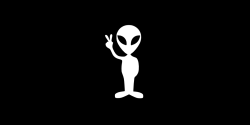
Verses Calls for a Digital Pluriverse on Arweave
Facebook recently announced they’re rebranding to Meta. Meta refers to the Metaverse which may form a monopolistic view of the digital ecosystem that requires pushback. This created a fascinating counter-movement from a group called Verses.
“A group of us came together to work on the Declaration in response to FB’s rebranding as Meta. Now, that core group, along with new friends, work together as Verses”, Daanish Shabbir, Verses
Verses is a community of poets, artists, researchers, creators and others, that have come together to envision a world where different kinds of collective culture and self-organization can coexist.
They call this world the Pluriverse. The Pluriverse is a concept with its origins in the work of activist groups in Latin America, who fought against the material concentration of wealth, decision-making, and power, emphasizing instead a mosaic of alternate and communal world. Within a pluriversal context, many different kinds of people can express their opinion and build different kinds of communities.
Verses itself is organized as a democratic collective of contributors, starting with members who worked on, or advised, the group’s response to Meta. The group works through members making proposals for new projects, and then moving them forward using decentralized governance and voting.
Each project – or artefact as they call it – is a verse, that collectively makes up Verses.
For example, the first verse that has been created is a revision to John Perry Barlow’s 1996 “Declaration for the Independence of Cyberspace”. Although some believed that it was correct at the time of writing – to a degree – it has now fallen out of the present world’s narrative – a world that is in need of interdependence and co-creation. The revised declaration was collaboratively written by many – unlike John Perry’s original which he wrote himself.
Anybody who feels like they want to change something within the declaration can do so by creating a fork in which they can make their alterations.
After being created, the declaration was stored on Arweave (on October 31st 2021), and anybody who wants to is able to digitally sign it here using their wallet. At the time of writing there are almost 2000 signatures.
Here are the Arweave transaction IDs for the Declaration:
Upon asking one of the team about it, they had this to say:
“We had been inspired by @cryptowanderer’s praise of the Arweave, as well as the ethics and aesthetics of that project. We wanted our formal choices to reflect the ethos of the Declaration, so it made a lot of sense to have it on the weave!”
So how does an artefact come to be? Let’s take a look
Collaboration and community are at the center of how Verses works. They have referred to their method of collaboration as “Stone Soup”, in which any person with a unique skillset can jump in to offer their talent in order to help progress a project.
Unlike DAOs, the members of Verses have aimed to make their governance non-financializable. In order to partake in voting, members must hold a Verses governance token, one of which was distributed to each early contributor. Even though the token is an ERC-20, it has been customized to prevent it from being traded on exchanges.
In addition to voting from the entire group, Verses also has a council of 3 to 5 members that are in charge of the multisigs and community channels. This council is not permanent and will be rotated on a Verses Seasonal basis (6-9 months). After that time, new council members will be able to take the place of the existing ones.
Arweave made sense for the Verses team due to its emphasis on permanence, maintenance, and care.
Community over an individual
Besides web2 giants what was the inspiration for this project?
“I think the inspiration is web2 giants on one hand, but also misguided web3 projects that aim to address the harms of web2 giants while in fact replicating them on the other. The question is whether we can chart a truly alternate path away from these universalizing and financializing ecosystems through the pluriverse.”
Could you also elaborate on what are the key differences between cyberspace and pluriverse?
“I see cyberspace as largely a descriptive term, while the pluriverse is both descriptive and normative – it’s describing a possible outcome for cyberspace that is by no means guaranteed. Pluriversality also has a very specific history, as a concept from decolonial theory that aims to stand against universalizing ways of knowing, being, and creating – so we see the pluriverse as an embodiment of those values that can be transferred into the digital realm.”
The next Verse
Verses has just let the second artefact out into the world, which you can check out here. Upon asking the team what their plans are for the future, they said they are working on new artefacts that build upon the pattern language they discovered in the Declaration.
Verses seems to hold deep within its core what Web3 really could be. A place where everyone can collaborate and trust each other without even knowing who they’re working with. A place where free speech roams free, and where the platforms on which we communicate are not owned by the few monopolists, but by the people – by the many.
Join our
